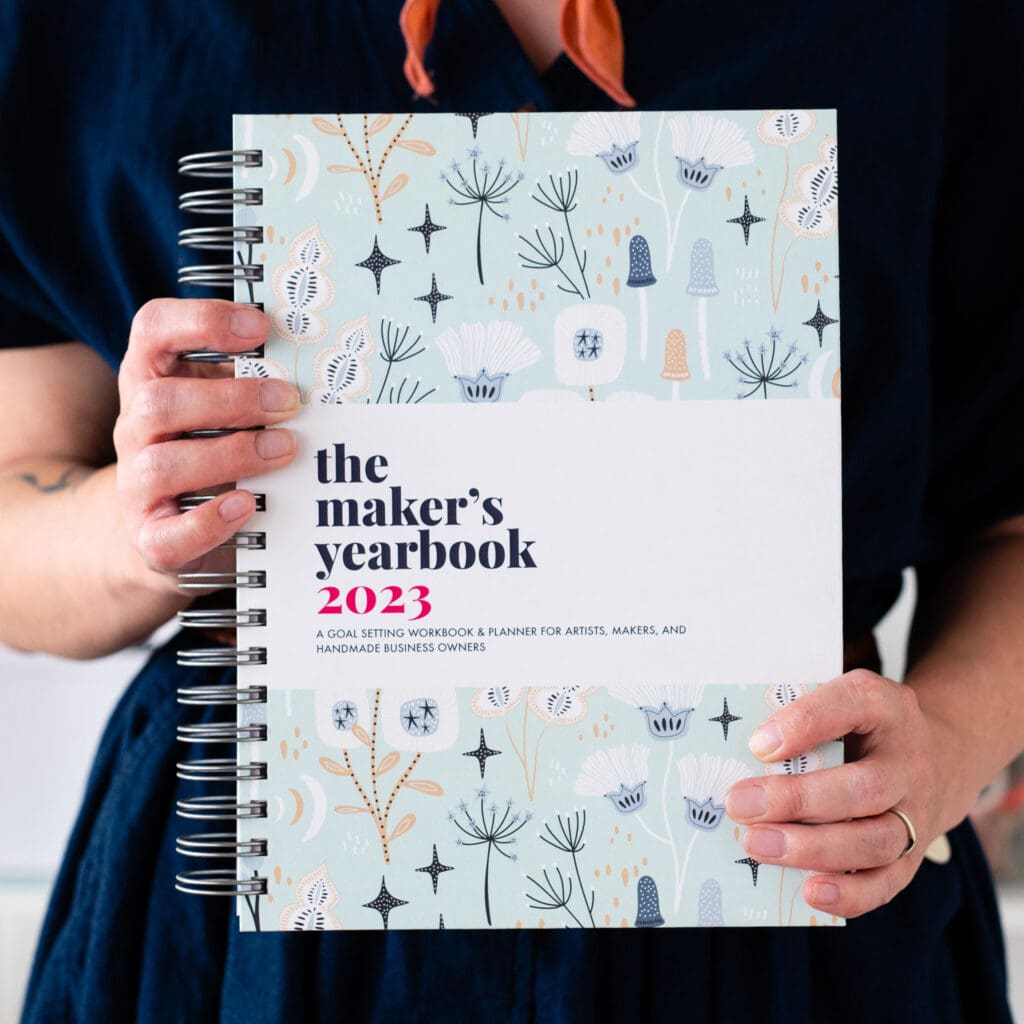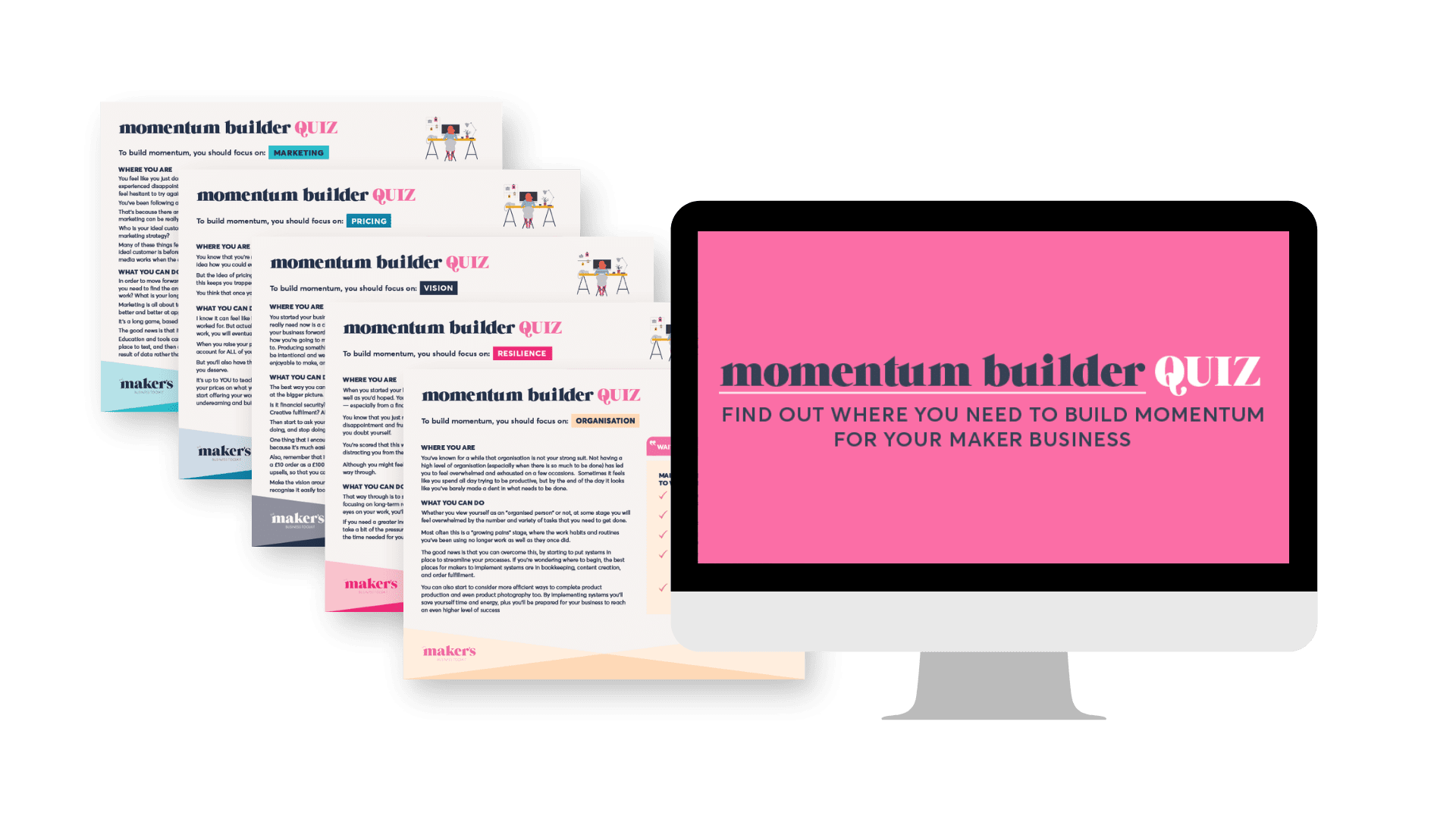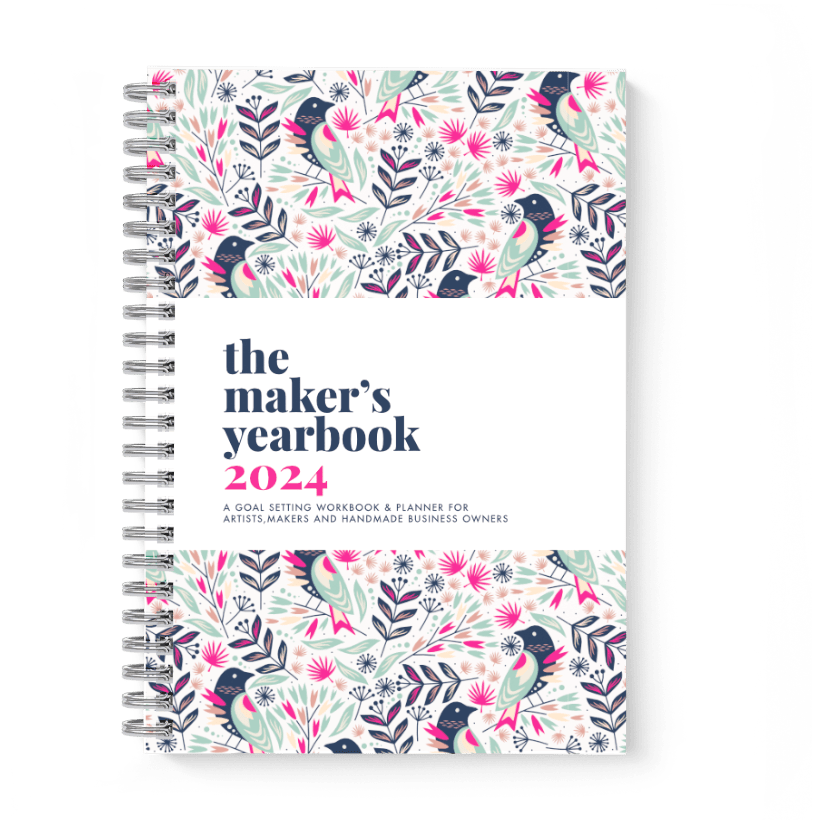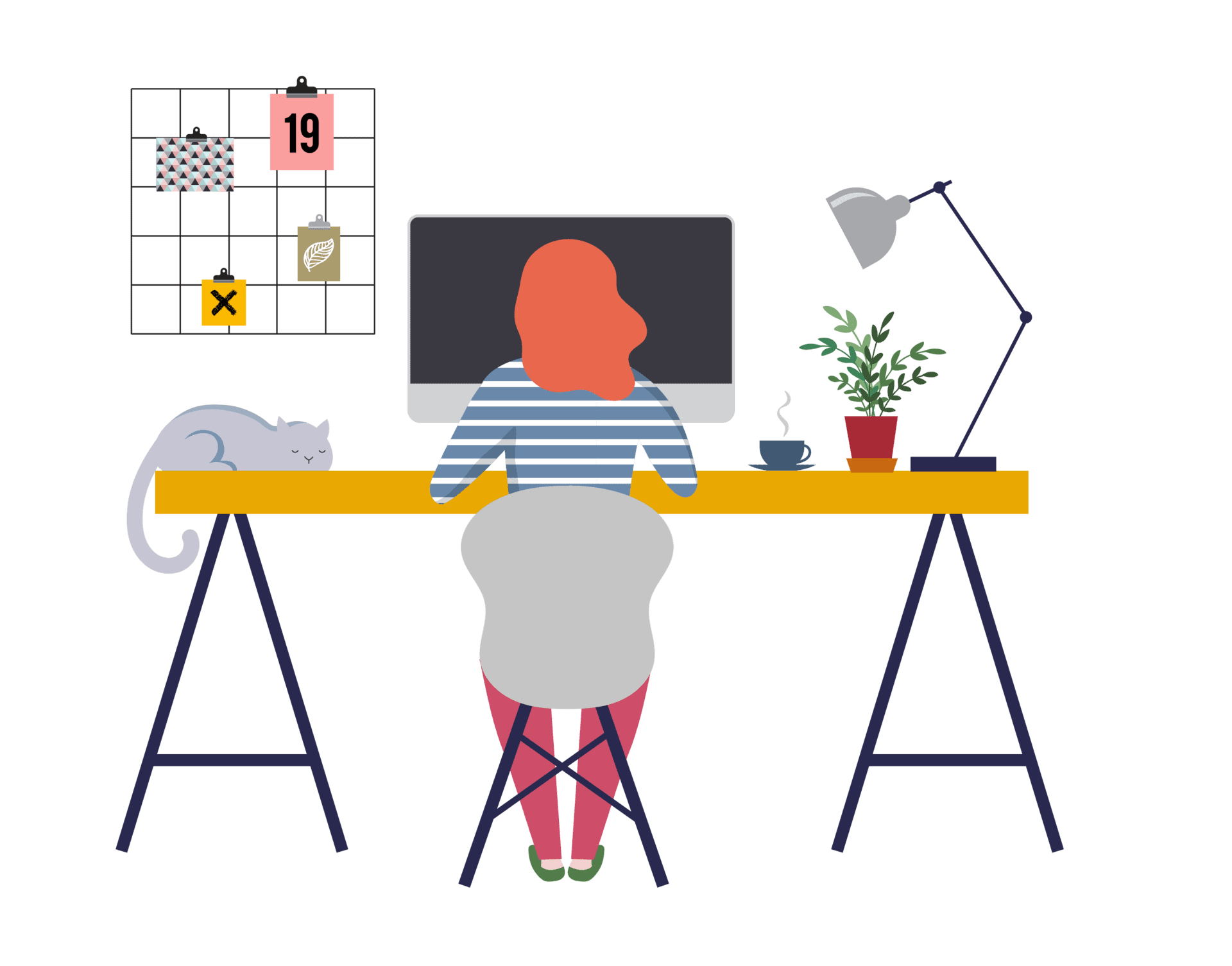Okay, admit it. How many planners do you have around the house that you never even opened?
How many do you have that you used for a couple of weeks and then you just lost momentum and put them away, never to be used again?
You’re not alone. We’ve all got a million courses, books, planners, and pieces of software that we bought, thinking they would be THE THING that would help us to make our businesses successful.
But we were busy, and we put them away for a bit, just until things calm down. And then they never did.
It’s a really common pattern for small business owners and I think a lot of it can be explained by the fact that we build our businesses organically.
Very few of us sit down and plan out our maker business empire in great detail. We just get started and see how it goes.
That’s absolutely the right thing to do – because we need to get at least some experience doing something, before we can start to think about the best ways to do it.
But it does leave us feeling a bit lost, and we’re usually aware that we’re not where we want to be yet AND we’re not using the time we have in the best way.
As problem solvers we then go looking for solution to help us “get organised” or to “stop procrastinating.”
That’s when we discover planners.
They’re so pretty and just buying one makes us feel more organised and on top of things.
But fast forward a few weeks and you probably don’t even remember that you’ve got it, and you’re back in the same situation of wasting time and getting more and more fed up with yourself.
Does it all mean that planners don’t work? Or maybe that they don’t work for creative people?
Yes. And No.
Planners don’t work – if you don’t do the work too.
So the best planner for you is the one that makes it easy for you to use it.
Here are some reasons why planners may not have worked for you in the past, and what you should consider when looking for a planner in the future.
No planning system can cure procrastination.
The reasons why we procrastinate are so much more complicated than just being disorganised, and filling in time slots in a book will not make you suddenly motivated to do the work you’ve been avoiding.
Procrastination is trying to tell you something about what you’re afraid of, and what you feel about yourself. A planner can’t make that go away.
But a well thought out system can help you to investigate your specific reasons for procrastination and encourage you to keep trying new approaches to breaking down the things that are holding you back.
Too many of us look for an external solution to a problem, beating ourselves up that we’re not doing better, when what we really need to do is seek out the areas where we’re getting stuck and investigate the real cause.
A planner can help you to build a routine around self reflection and make it easier for you to remember to do this work, when everything else seems more urgent, but not if you stop using it because you thought it would have fixed things by now.
You need to make space in your routine for a new planner system
Like everything you add to your daily, weekly or monthly routine, you need to make space for a new planning system, and that’s a step that a lot of us skip.
We think that using the planner will create the time, when we actually need to make the time to use the planner.
That’s not always easy in busy times, but if you want things to change, you do need to stop, take a breath and decide what’s most important to work on, rather than just reacting to what’s in front of you.
A planner that can quickly and easily fit into your routine can make it easier to actually make time for your planning.
This is why I’m not a fan of bullet journalling. I LOVE the endlessly customisable options but the process of setting it up and keeping it organised just feels like too much work for me.
And if it takes me a lot of time to organise, I just won’t do it and the system can’t help me.
You need to work in the ways that work for you
Everyone is different.
Some people love to start work at 5am and feel really productive when they get a lot done before the rest of the world is out of bed.
For me, after 7 years working in finance, I never want to get up early again.
Some people are creative at certain times of day, or can concentrate better at different times of day. Some people have health conditions that make life unpredictable.
Whatever your personal circumstances and personal preferences, the planning system you choose has to be able to adapt to your life.
So if you know that on any given day your kid may end up in Accident and Emergency, or your elderly parents might need help, or you might just need to take it easy, then a planner that encourages you to schedule every moment of every day might not be the best fit.
Work is better when we don’t fight with ourselves or resent our situations. A planner should never make you feel inadequate or that you can’t achieve the things you want to achieve without being different.
You need to have a system for reestablishing your routines
For many makers, there’s a reason why we stop using our planners in late January/early February.
We get through a busy and exhausting Christmas selling season, just hanging on until we can take a break.
When January comes, we’re still exhausted, but we get back on the treadmill and start running again. Everyone else seems so far ahead and we’ve got to catch up somehow.
Eventually, around week 3 of the new year, we can’t carry on and we have to take a break. Maybe a week or two off work.
And that’s when the shiny new planner we’ve just started using goes into the drawer, never to be seen again.
Any kind of break disrupts the rhythms of our business. It might be a planned holiday, illness, a week at a big art show, or any of the other things that interrupt our routines.
Just after a break is the time when we’re most vulnerable to slipping back into old habits. The things we’ve been doing for the longest.
So you need to have a system for resetting and getting back into good routines when you get back to work.
We don’t tend to think about that but the speed at which you get back to building momentum after an interruption, is one area where making even a small improvement can have a really big impact on your business.
I created The Maker’s Yearbook to help with all of these challenges.
The Maker’s Yearbook is based on building working routines that can help you to reflect on how things are going, not only in your business finances, but also for you as a business owner and a person who now has to organise and monitor the work they do in their working hours.
It’s also focused on managing tasks, not time. So it doesn’t have timed slots for you to fill in each day.
It’s designed to flex up and down, depending on what is going on for you. It encourages you to decide what is most important to do, and what you CAN do, on any given day, with your resources of time, energy and attention.
And, most importantly, it is designed to be repetitive. It’s designed to become a habit. A part of your routine for the day, the week, the month and the year.
That way you don’t forget about it. You can fit it in. And you can easily get back to it after an interruption.









